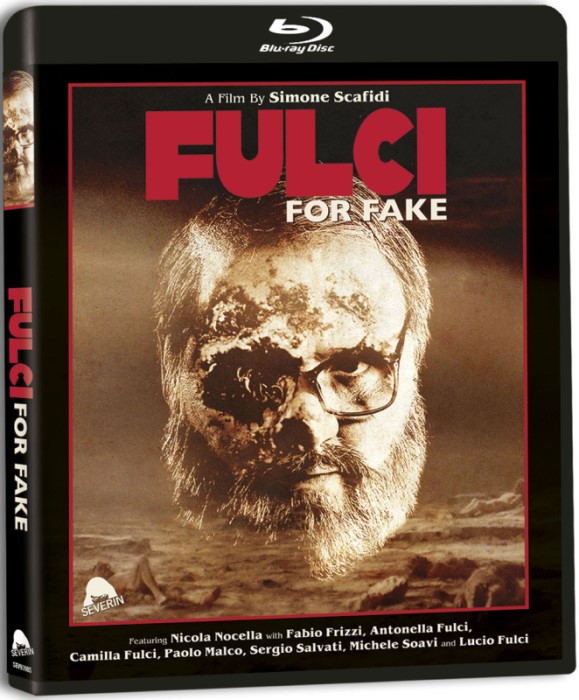Actor Sandro Bitetto is hired to play Italian horror director Lucio Fulci in a film about his life. The problem is that he doesn’t know jack squat about the “Godfather of Gore”. So, he goes around interviewing Fulci movie experts, his former colleagues in the Italian film industry, and even the man’s daughters to help him get into character. What he discovers is that the director was a complicated guy who put his morbid obsessions and the pain of his personal tragedies up on the screen.
Director Simone Scafidi takes a novel approach to his Fulci biopic giving the viewer an insightful, if incomplete, look at the director from his comedies in the late 1950s up through his death in 1996. When I say “incomplete”, I just mean that the biggest criticism I can muster up against Fulci for Fake is that it left me wanting more. I wanted to hear from more people who worked with Fulci on his films, more insights from Fulci film scholars, and I wanted more segments featuring Bitetto as the man. This film is an hour and a half, but I could’ve easily sat through another hour or more.
That being said, it’s such a treat to finally hear from Fulci’s daughter and frequent collaborator, Camilla Fulci, in her first on-camera interview. They were very close, and she happily provides insight into their relationship and her father’s private life. Fulci’s infamous on-set temper is discussed and actor Paolo Malco, who later became close friends with him, details how he dealt with it on the first day of shooting The House by the Cemetery (1981). Other familiar faces share stories about working with the director including director Michele Soavi, cinematographer Sergio Salvati, and composer Fabio Frizzi. Since the film focuses so much on his relationship with women and especially women on film, I wish there had been more actresses from Fulci’s classics like Daniela Doria, Dagmar Lassander, Cinzia Monreale, Florinda Bolkan, or Catriona MacColl in the interviews to follow through on that theme.
Fulci for Fake is an excellent heartfelt celebration of Lucio Fulci that doesn’t shy away from the more difficult aspects of his character or the heartbreaking moments from his life like his wife’s suicide or the downfall of his career in the late 1980s due to his failing health. This film is a must for fans of this director’s nihilistic splatter films and penchant for eye violence. The score by Federico Truzzi is beautiful as it is equal parts emotional, frightening, and haunting. And while some folks may not enjoy the recreated moments of the director behind the camera, I really enjoy watching Sandro Bitetto in heavy prosthetic makeup trying to make sense of Lucio Fulci. The interviews, behind-the-scenes photos, and home movie footage are more than enough to tempt any self-respecting Italian horror buff.
The Severin release of Fulci for Fake looks and sounds superb and it’s loaded with extras. But you know what -and here’s how spoiled I’m getting as the years go on- I really wish that this had come with a CD of Truzzi’s soundtrack for Fulci for Fake on it. But don’t let my privileged insanity sway you from checking out this disc.
In the real extras (and not the one I made up just now), there’s an extensive interview with director Scafidi where he talks about why he wanted to make a biopic on Fulci. The disc also features the entire hour plus long interview with Camilla Fulci in its uncut version. There are also extended versions of interviews with Soavi, Salvati, Frizzi, and Malco. There’s an interview with Fulci biographer Michele Romagnoli who worked with the director right up until his death as well as extended home movie footage and location scouting with Fulci. Want to hear Fulci in his own words? You can! There’s audio clips of interviews that Romagnoli conducted from when they worked on his biography. And finally, there’s footage from the premiere of Fulci for Fake with the prerequisite zombie walk and a trailer for the film.
Director – Simone Scafidi
Cast – Sandro Bitetto, Camilla Fulci, Antonella Fulci, Paolo Malco
Country of Origin – Italy
Reviewer – Richard Glenn Schmidt

